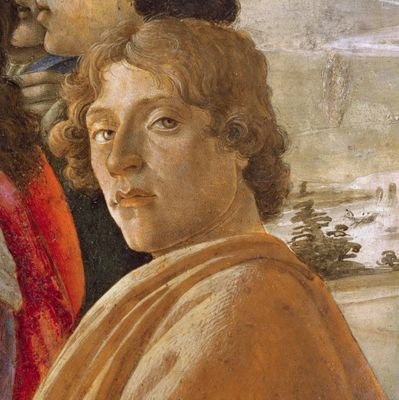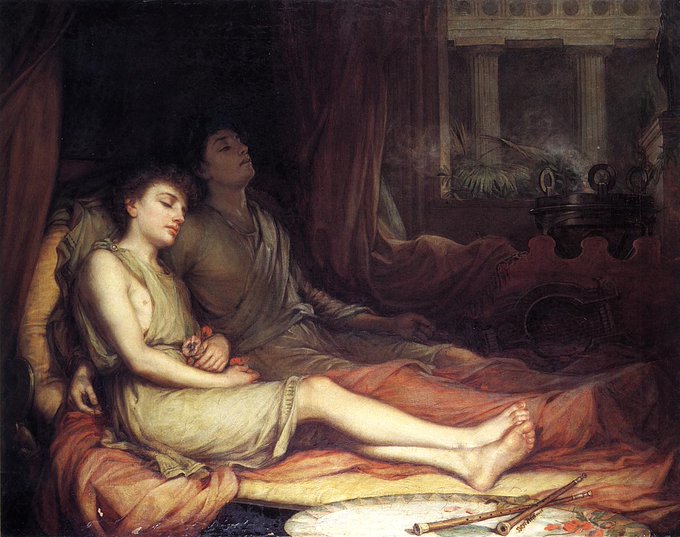#OnThisDay the Roman calendar marked the Matronalia, a festival celebrating motherhood and the goddess Juno Lucina (“Juno who brings children into the light”), the goddess of childbirth.
During the festival, women received gifts and prayers from their husbands. #Classics #Juno
#OnThisDay the Roman calendar marked the religious festival of the Feriae of Mars.
During this festival, the Salii, or the “leaping priests” of Mars, donned archaic military uniforms and carried the 12 sacred shields of Mars in a religious procession. #Classics #Mars #Romans
(3/11) Within Roman society, Mars was seen as a father of the Roman people and a guardian deity that protected the state. He was inseparable from Roman concepts of virility ('vis') and virtue ('virtus'), and as such was a favourite patron deity of Roman soldiers.
#AncientAuthoroftheWeek 📚 - Propertius.
(1/4) Today we're considering one of the best well known Latin elegists, Propertius!
Propertius lived between c. 50-15BCE and was potentially a friend of the poets Vergil and Gallus. With them, he shared the poetic patron Maecenas.
(4/8) The Pantheon is a remarkable feet of engineering. It's most significant feature is the freestanding concrete tufa dome, which for 1,300 years was the largest in the world. To this day, its dome remains the largest unsupported concrete dome in the world.
This #FrescoFriday we present this incredible work from the Tomb of the Dancers!
Found in a Peucetian tomb in Ruvo di Puglia, Italy, it dates to the 5th - 4th century BCE. Discovered in 1833, the tomb held the remains of a distinguished warrior. #Classics
Now held by @MANNapoli
(8/8) The statue of Laocoön has been immensely influential on European art since its discovery, inspiring the works of Michelangelo, Raphael and Bandinelli to name a few. Seen as an 'ideal of art', Laocoön's suffering has undoubtedly shaped the creativity of European culture.
(2/2) Despite this, the reputation of Messalina throughout history has been one of a depraved deviant. Paintings and sculptures from the Renaissance onwards have depicted her as such, and her portrayal in cinema and television has perpetuated the notion of her debauchery.
#OnThisDay: In 550CE, the Ostrogoths, led by King Totila, conquer Rome after a year long siege. Starving and unpaid by the emperor Justinian, the Isaurian garrison betray their comrades by opening the city gates under promise of payment from Totila.























